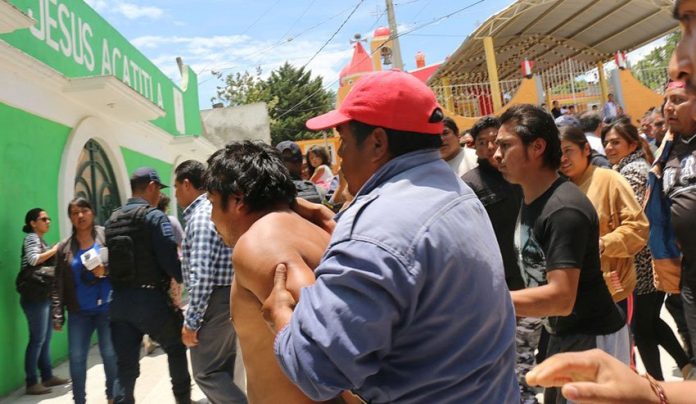Nowhere in Mexico is violent vigilante justice more common than in Ecatepec, México state: there were 28 lynchings or attempted lynchings in the municipality between 2015 and 2018.
A new report by the National Human Rights Commission (CNDH) said there were 336 lynchings or attempted lynchings in all of Mexico in the four-year period, and that the number of cases rose every year.
There were 43 in 2015, 59 in 2016, 60 in 2017 and 174 last year. The 2018 figure represents a 190% increase over the previous year.
A total of 188 municipalities recorded at least one lynching case during the four years studied by the CNDH.
There were 561 victims of whom 121 were killed in last year’s cases, the CNDH said. More than 90% of the victims were men.
The number of lynching cases in Ecatepec – a sprawling, heavily-populated municipality in the metropolitan area of Mexico City that is notorious for violent crime – is more than twice that in Puebla city, which recorded the second highest incidence of violent mob justice with 13 cases between 2015 and 2018.
Cárdenas, Tabasco, was next with 10 cases followed by Iztapalapa, Mexico City, with eight cases and Naucalpan, México state, with seven.
Milpa Alta, a largely rural borough in the south of Mexico City, Tehuacán, Puebla, and Villahermosa, Tabasco, all recorded six cases of lynching between 2015 and 2018.
The CNDH said that in 69% of cases the lynchings or attempts at lynching were retaliation for robberies, attributing the high percentage to the fact that it is more likely to catch someone in the act of stealing than when committing other crimes.
Alleged kidnappers were targeted in 11% of the cases while people believed to have committed sexual assaults were victims in 7%.
Last year’s cases occurred in 23 states but just five – Puebla, México, Tabasco, Mexico City and Hidalgo – accounted for 76% of cases.
A total of 34 people were killed in lynchings in those five states in 2018.
Impunity and a high perception of insecurity are key factors in the rising number of lynchings occurring in the country, the CNDH determined via a survey.
Source: Milenio (sp)
